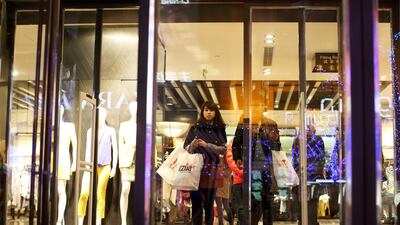A new hashtag, #ditchyourstuff, has started trending on Chinese social media in recent weeks, garnering more than 140 million views.
It’s a sign of the times. Job losses and insecurity, furloughs and salary cuts are radically altering consumer habits around the world, making people more conscious of how they spend their money. Many have been taking their time in isolation to reflect and reassess their priorities. And for some, the current crisis has acted as a wake-up call about how they manage and spend their funds.
In China, as the #ditchyourstuff trend shows, many young people are rethinking their approach to shopping, offloading their possessions and embracing an age-old mantra: less is more. A recent survey by McKinsey & Co revealed that between 20 and 30 per cent of respondents in China would continue to be cautious, either consuming slightly less or, in a few cases, a lot less.
And this shifting approach to mass consumerism is likely to extend beyond the current crisis, according to a survey of more than 3,000 consumers in 15 countries across five continents, conducted by Accenture between April 2 to 6.

The survey found that 60 per cent of respondents are spending more time on self-care and mental well-being, with about six in 10 saying they have started exercising more at home; 64 per cent of consumers said they're focusing more on limiting food waste and will likely continue to do so going forward; 50 per cent said they're shopping more for healthier options and will likely to continue to do so; and 45 per cent said they're making more sustainable choices when shopping and will likely continue to do so.
“The scale of the changes identified in our findings clearly suggest that this is a long-term shift,” says Oliver Wright, managing director and head of Accenture’s global consumer goods practice. “While we have been seeing these trends for some time, what’s surprising is the scale and pace — compressing into a matter of weeks changes that would likely have taken years. The new consumer behaviour and consumption is expected to outlast the pandemic, stretching far beyond 18 months and possibly for much of the current decade.
“The pandemic is likely to produce a more sustainable, healthier era of consumption over the next 10 years, making consumers think more about balancing what they buy and how they spend their time with global issues of sustainability — suggesting a healthier human habitation of the planet.”


